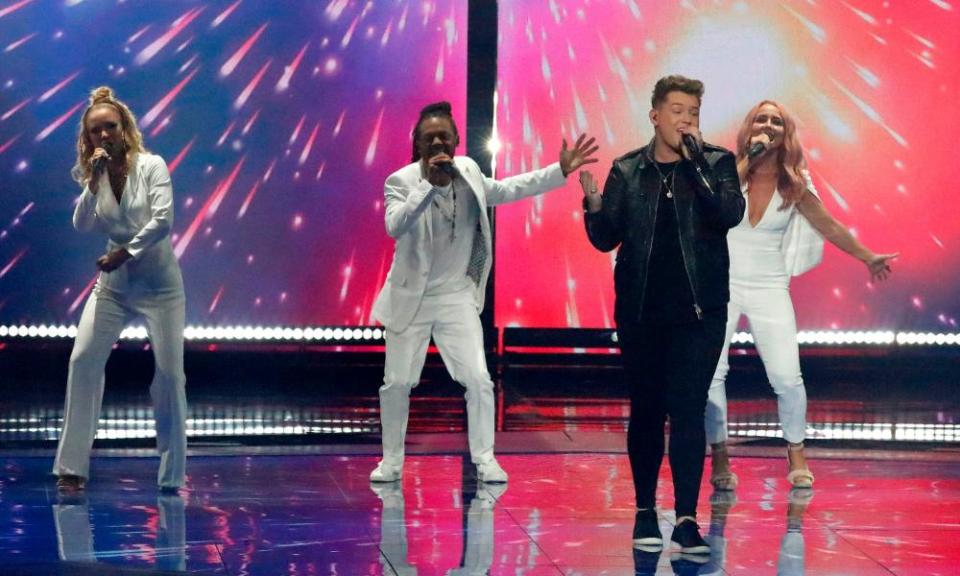BBC takes Eurovision choice from public in bid to improve record

The BBC has decided against allowing viewers to choose the UK’s entry to this year’s Eurovision song contest, following the poor performance of the British public’s recent choices.
Instead Eurovision presenter Graham Norton will unveil Britain’s representative on Thursday, with the singer and song having been selected by record label BMG without public consultation. The unveiling of the entry will take place on Greg James’ Radio 1 Breakfast Show and Ken Bruce’s Radio 2 morning programme on Thursday morning.
Norton confirmed the details while announcing details of the BBC’s coverage in the contest, which will be held in Rotterdam in May. He optimistically asked: “Will we finally hear those elusive words United Kingdom, douze points?”
Britain’s last four Eurovision entries were chosen by the public, with three of them finishing in either last or second last place. The most recent contestant, 19-year-old Michael Rice, won just 11 points in last year’s Tel Aviv contest in finishing 26th.
In a bid to avoid another embarrassing national defeat the process has been handed to one of the world’s biggest record labels – who also publish hits by the likes of Lewis Capaldi, George Ezra and Jess Glynne – in the hope they can find a way to make Europeans vote for the UK.
BMG was asked to find a “song with broad international appeal” and secure a singer “who embodies the spirit and values of the Eurovision Song Contest”, although it is unclear whether they have chosen a new or an established act.
However, there is no guarantee that taking back control from the public and giving the choice to experts will lead to British success on the continent. The last time the BBC unilaterally chose artists for Eurovision through an internal selection process the results varied wildly, with only Blue’s relatively successful 2011 entry bucking a long-trend of the UK’s underperformance.
Some countries have a highly-competitive national singing competition to choose their Eurovision entry, with the likes of Sweden saying the process has contributed to their success in the competition. Many recent Eurovision winners have also benefitted from already being stars across Europe before the contest begins, meaning audiences are already aware of them when voting begins on the night. Some other countries have poured substantial sums into the contest, viewing winning as a point of national pride.
While almost every other participating country has to take part in a semi-final before qualifying for the final, the UK has a historic automatic pass to the final due to the amount of money the BBC puts into Eurovision. However, there have long been complaints that individual countries’ votes often reflect political allegiances rather than musical qualities – with the UK’s departure from the European Union at the end of January unlikely to have endeared the nation to many continental audiences.

 Yahoo News
Yahoo News 